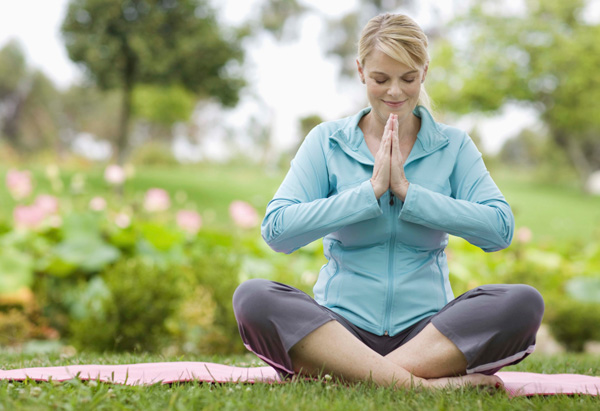Overeaters Anonymous: One Food Addict's Spiritual Cure

Photo: Thinkstock
Her cravings, in retrospect, were out of control—there wasn't enough pasta in the world to satisfy her. An anonymous, self-described food junkie learns to take it one dish at a time.
I do not hide candy bars under the couch. I do not prowl dark country roads in search of all-night diners or steal cookies from my kid's lunchbox. Still, after years of denying that I suffered from compulsive eating habits, I joined Overeaters Anonymous (OA) and listened to these anecdotes with horror and empathy. While the details often exceeded my own most psychotic episodes with food, yielding to the clutches of uncontrollable eating was all too familiar, along with its certain, subsequent dive into remorse, shame, and humiliation.OA is patterned after Alcoholics Anonymous, and in the language of 12-step programs, I am a "high bottom" addict: My life had not become unmanageable. Weight was never an issue in my career or in my marriage. I fit easily into airplane seats, and I came to OA wishing to lose just 20 pounds, not 100 or more. Yet after finishing a normal helping of pasta, I have another. And another. Left alone with enough for ten people, I'd eat it all. A trigger goes off in my head or in my body or in my blood sugar—I don't know where it goes off, but I am rendered completely, utterly powerless.
At those times, I am a junkie, a spasm of need and desire, wholly focused on ingesting that bowl of pasta (or doughnuts or ice cream). Wheat and sugar. The OA program doesn't promote any particular diet, but wheat and sugar so pervasively spark compulsive eating that many members make abstinence from them the turning point in overcoming their addiction.
Food has always been my drug of choice. I eat to numb myself, to deaden the feelings of...is it loneliness? Grief? Anger? Could those circuits have blown out by age 5? That's how old I was when I began stealing loose change to buy candy. Eating became my one-beat response to every feeling. When I was tired, I ate. When I was wide awake, I ate. When I was elated, I ate to calm down. When I was sad, I ate to cheer up. Maybe it's biochemical. Maybe it's a disease like diabetes. "The reasons are unimportant," says the OA literature. This is hard for my psychologically oriented mind to accept. But OA is filled with people who have hit a wall trying to reason out their eating. Over and over again, their conclusion is that only reliance on God, or our "higher power," as we individually understand that concept, "can restore us to sanity."
I had entered the program determined to remain open to the spiritual language of 12-step work. Between growing up as a secular Jew and then gravitating toward Asian traditions, the word God had never entered my vocabulary. But I prided myself on being a cut above those prickly, educated atheists who would rather remain drunks and overeaters than enter a program where their disorder was identified as a spiritual crisis. It did not offend me to hear that my disease couldn't be healed until I turned my will over to God or to a higher power, or to be told that prayer and meditation were instrumental to recovery. There was one problem, however: I had absolutely no idea what anyone was talking about.
Then one day a man in his mid-30s compared the process of his recovery to driving a car when the windshield was fogged up. Initially, he cleared a small patch of the window and sat hunched over the wheel with his face pressed to the glass. The only view was, basically, the tip of his nose. But slowly the clear patch expanded; the view became wide, then immense, and then infinite. Bingo.



